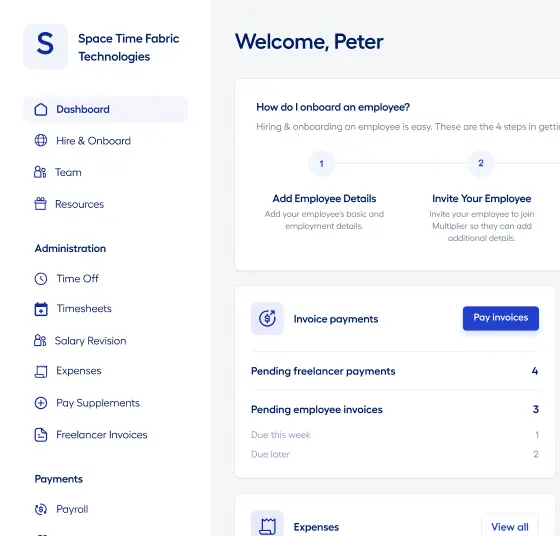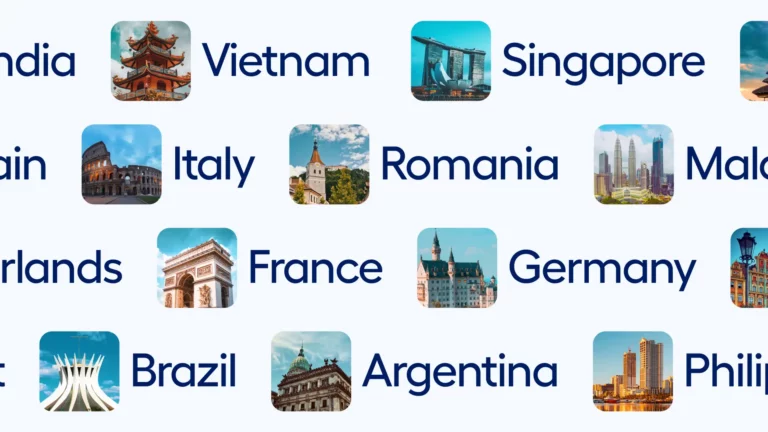What is an International Business?
The process is called international business whenever an organization carries out the production and sale of goods & services between different countries. There are many ways a business can expand internationally:
- When the business manufactures goods domestically and sells them in the domestic or international markets
- When the business renders services to global customers/clients
- If the business produces goods in a different country but sells them domestically
- If the company has goods in a foreign country and sells them in domestic and international markets
Businesses prefer producing goods in the counties where the labor costs or taxes are lower. They prefer selling the products & services in the global market to benefit from the high potential of the larger audience, new customers spread globally and increased revenue.
Presently there are multiple challenges in international business since every country has its business policies that outline the laws & regulations, cultural & language variations, exchange rates, time zones, and inflation rates. Therefore, steering the global business issues today can be a difficult task. The further sections of the article highlight the changing trends and challenges of global business and how to overcome them.
12 Challenges in International Business
The following factors highlight the problems of international business:
1. Managing globally distributed teams
Developing and successfully managing teams at the international level is a tough job. The complexities of international businesses like varying labor laws, payroll laws, compliance, tax laws, employee rights, and varying technology access increase global team management challenges.
To maintain a strong work association with your team spread across the globe, you must ensure regular check-ins, preferably through a video conferencing platform that enables real-time interactions. Many researchers have shown that employees who regularly interact with their managers are three times more likely to be engaged in their work than employees who do not interact.
In the aftermath of the COVID-19 pandemic, when many companies have shifted to remote working, distance divides teams. Therefore, effective communication and collaboration are essential to ensure employees feel valued and productive work engagement.
2. Language obstacles
In international business, it’s prevalent to meet people speaking different languages. The language barrier is one of the most significant international business challenges. Therefore, most multinational companies hire employees fluent in at least one foreign language.
It’s noteworthy that organizations often face difficulty explaining their goals to the customers due to the information lost in translation. It’s also vital to consider the languages your team members speak, and the customer support executives should be in line with your target customers. Significant investment in interpreters and maintaining a pool of employees comfortable in major global languages ensures that your business operates smoothly.
In some countries, labor laws dictate that employment contracts are written in the local language. While employing talent in another country becomes a challenge for international business. Employing a local to verify the correctness and compliance of these contracts is one way to solve this problem.
3. Currency exchange and inflation rate issues
An international business receives payments from multiple nations. The value of a dollar for your native country will not always be equal to the same amount in other currencies. Therefore, it’s one of the major problems of international business as the currency’s value consistently fluctuates for the same amount of goods & services.
It’s recommended that you familiarize yourself with the currency exchange rates and the inflation rates of the nations where your international business operates. The inflation rates influence the price of commodities and labor costs, which eventually steers the final product pricing. Monitoring these two rates provides essential insights into the market value of your product & services in different locations over time.
4. Cultural variations
The different counties worldwide, sometimes other regions within these countries, have a unique cultures. Understanding the different cultures your employees and clients follow enhances the management and increases cross-cultural business relationships. Eventually, this reduces the complexities of international business and makes your processes highly effective.
Whether managing your overseas office, selling your products/services to international clients/retailers, or operating an overseas manufacturing set-up, it will significantly benefit your international operations once you understand their cultures and employ emotional intelligence.
5. Nuances of foreign policies, geopolitics, and cross-country relations
The international business environment is greatly affected by political scenarios and the foreign relations between the countries. When you expand your business in the international market, it’s essential to know the financial systems, trade policies, and country-specific tax regulations. Friction in cross-country relations is one of the significant complexities of international business. This knowledge affects your business strategy and ensures that you abide by the rules and regulations of the operating country.
The political decisions taken by the leaders influence the taxes, labor wages, commodity prices, transportation & infrastructure costs, etc. Therefore, you should update yourself with the strategic decisions, and the workplace policy should comply with all the regulations.
6. Supply chain risks
Managing the supply chain that encompasses national borders lies among the significant problems of international business. The particulars of imports, exports, offshore shipping, and related logistics are steered by international laws and other foreign legislations. If your business sources products & services overseas, managing the supply chains can pose a significant threat to international business.
International expansion is a strategic decision that should be taken after developing a solid supply chain strategy as it affects the future of your business. Supply chain strategies need to be unique based on your business requirements, and you need to develop them specifically for the locations you wish to expand. This includes studying the local trade regulations, external influences, existing supply chain, and local material availability.
Unlock your global hiring potential and reach new horizons with Multiplier
7. Talent acquisition and onboarding
Hiring and retaining talented employees is an essential aspect of international expansion. Talented and motivated staff with the required knowledge base and industry experience of the specific region are assets to the organization. If your business lacks experienced employees who can act as an anchor for that location, your international expansion can face challenges. This challenge is amplified in the case of venture mergers or acquisitions.
For an international business, hiring employees across the globe involves multiple challenges like an onboarding plan unique to remote work, increased overhead expenses, extensive HR support, etc. When you hire employees from overseas, access to these employees is not the same for all as in offline work, making it challenging to make the right decision.
8. Compliance issues
Tax compliance issues are one of the challenges of expanding globally. All international businesses have to deal with multiple countries having different business regulations, tax rates, and other commercial fees; these are hindrances that must be complied with to operate globally.
If the business fails to comply with regulations, it can hinder business expansion and pay hefty compliance charges. This means that employers must do thorough research and legitimate paperwork to comply with the dynamic international regulations.
9. New market competition
When multiple companies offer similar products and services, their business models create aggressive competition. If you wish to explore a new market, you need to do a market search regarding the companies already providing the products and services in that segment. The challenges of expanding globally also call for differentiating factors in your products and services so that they gain a competitive edge in the market.
It’s a profitable business idea to venture into unique products & services to create your own market while developing reputable business relationships with local vendors, shipping agencies, suppliers, and logistics to strengthen your supply chain.
10. Brand consistency
International businesses solve different problems for different customers worldwide; it’s challenging to create brand consistency and leverage it in the global market. Brand consistency refers to the functional language, logo, work culture, and many factors affecting your brand’s growth. Evolving a global corporate strategy is imperative to brand consistency.
A company’s brand differentiates it from the other companies as it is the company’s trademark. Another challenge with brand consistency is that your business must maintain consistency in its deliverables. If the business is successful, the brand recall value increases, leading to exponential growth in profit.
11. Environmental issues on a global level
The environmental risks and effects of global warming and climate change are evident daily. Therefore, sustainability is high on the priority list of the foremost multinational corporations. The UN’s Sustainable Development Goals have elevated environmental issues as the challenges of expanding globally. Businesses should develop and implement more environmentally sustainable business processes.
It’s essential to be aware of the country-specific environmental regulations to expand your business overseas and avoid legal issues in global business. This highlights the importance of sustainable production methods and non-conventional energy resources for your production process.
12. Payrolling challenges
The global expansion comes at a cost; the payroll challenges can accumulate if not appropriately managed. It’s noteworthy that each global payroll challenge gets multiplied by the number of nations your company serves. Since every country has laws and regulations related to taxes, retirement benefits, and healthcare requirements, managing all these factors poses a significant challenge when you venture into a new country.
However, you need not worry as Multiplier covers all these aspects. It takes care of all your global payroll requirements, taxes, employee benefits, and local insurance policies without the need to open any local business entity in the country your business plans to expand.
Ways to Make Running an International Business Easy
The following methods will help you reduce the international business challenges:
- Carry out thorough research on employment laws and work permits in the local country: There is a need to narrow down the viable markets based on your product/service utility for the first phase of your global expansion. Before expanding to different nations, international businesses need to consider the employment laws, market size, work permits, labor & resource availability, geographical limitations, and other legal obligation.
- Emphasize international marketing strategies: Challenges in international business can be reduced by working on systems that target the marketing mechanisms and platforms like social media and online advertising.
- Inculcate cultural sensitivity in your reach-out and operations: Global businesses need to prepare culture-sensitive content for the country where the company is based. Engagement of the target audience with the business goals is crucial for global expansion. It’s noteworthy that the reach-out techniques which work in one country could fail in the other due to the change in demography.
- Take advantage of local experts: To accelerate your learning curve, you need to take the expertise of local experts for insights related to your target audience. You can also hire industry experts from that area to learn and benefit from their experience, which eventually eases the complexities of international business.
- Establish personal relationships by visiting each country: The ever-evolving online business world cannot completely replace the face time essential to build trust and personal relationships that last longer. You can visit the countries where you plan to expand your businesses; it also provides a better understanding of the business model in that market.
- Testing new markets using independent contractors: If your company plans to expand to new geographies and the market is very challenging for expansion. You can test your products and services in the market through independent contractors.
- Invest in global employment solutions: Technically advanced employment solutions have made international transactions hassle-free and eased international business challenges. There are tools to deliver an online invoice in different languages, and the payment systems factor in the currency, applying the relevant tax and fee guidelines for the given country.
5 Tips for Managing International Business Challenges
The following tips will help you tackle the challenges of international business:
- Effective communication: Communication is the driving factor behind the success of your business, but its importance is more when it operates across different time zones, languages, cultures, and business policies. In-person communication is best, but when the teams collaborate globally, virtual face-to-face communication regularly cannot be substituted as it is vital in solving global business issues today.
- Access to the latest technology: Many countries lack access to the same level of technology which can hamper your business growth. It’s imperative to guarantee that your employees have the best technology for communication and systems to carry out their day-to-day tasks.
- Comprehensive research: Whenever a business plans to cross geographical boundaries, it should start by conducting detailed research about the market, target customer, growth statistics, and the ease of doing business there. Diving deep into the country’s politics and regulations helps better understand the international business challenges.
- Align to a purpose: Studies have highlighted that employees are now more aligned than ever with the organization’s mission and purpose. They look forward to a workplace culture that delivers it; people now lookout for a higher meaning to the work they provide and a peaceful work-life balance. If your organizational goals align with the employees’ common purpose and consistency in product delivery, it’s a win-win situation for both parties.
- Continuous learning: If any international business wishes to achieve heights, it should invest aggressively in learning and development for its employees. To reduce the barriers to international business, employees responsible for pioneering expansion should learn about best-in-class business practices and evolve with the continuously growing market.
How Can Multiplier Solve Challenges Faced by International Businesses?
Though international businesses face multiple problems, your organization can overcome them effortlessly with the correct information, guidance, and technological solutions. A straightforward way to overcome international business challenges is to pay reverence to culture, employment laws, and employee well-being in the countries you operate. And, once your company overcomes the complexities of international business, it comes to the forefront of business volume, profits, revenues, brand value, and stable market growth.
Although expanding your business globally takes a lot of effort, Multiplier’s SaaS-based global employment solution can enable you to grow fast and compliantly. Using Multiplier, companies can ease payroll functions & compliance for international teams.
Multiplier supports international businesses to set up remote teams anywhere in the world using remote onboarding features and payroll management in local currency. Multiplier’s SaaS-based EOR solution ensures your international workforce is 100% compliant with local labor laws as you boldly expand globally. The platform also helps your process payrolls in bulk in a single click and offers locally relevant benefits & compensation to all your employees.







